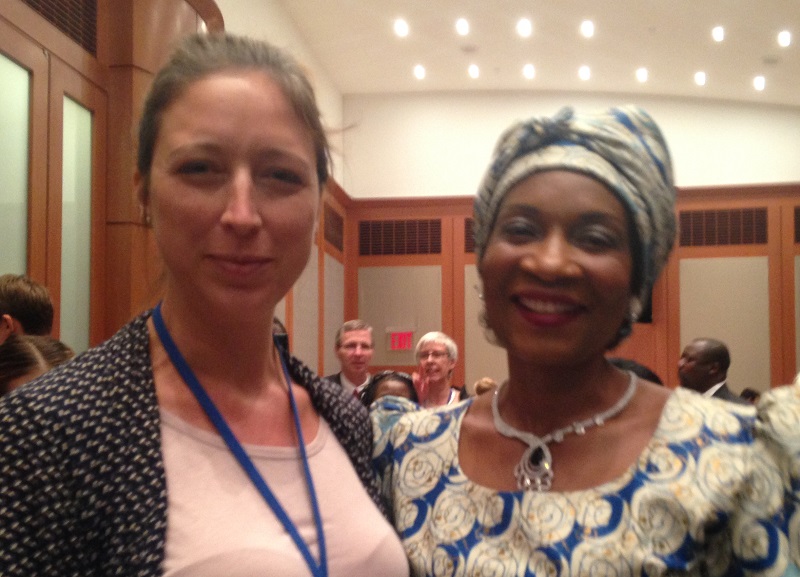As world leaders met to pledge their commitments to development at the United Nations General Assembly earlier this month, Islamic Relief engaged in a range of advocacy activities seeking to influence the agenda. Helen Stawski, Islamic Relief’s senior advisor on Post-2015, discusses our work – and why it matters.
Next year is the completion date for the Millennium Development Goals (MDGs). Whilst much progress has been made, there remains a lot more to be done. The development framework that replaces the MDGs must respond to the distinct challenges facing the world today, including global economic and ecological crises – and it must drive action that establishes social justice for the billions of people still living in poverty to ensure no one is left behind.
Islamic Relief is therefore pushing hard for a development agenda capable of promoting environmental sustainability, establishing equity and wiping poverty from the world map. As a large scale NGO, we are using our platform to influence the Post-2015 agenda, which will be the global framework for development over the next few decades.
Making sure that world leaders get the message

At the United Nations General Assembly last month, we used a variety of platforms to promote key messages around climate change, maternal health and economic justice that are so crucial in establishing a better world for all, as world leaders came to New York City, USA, to pledge their commitments for the Post-2105 agenda.
Islamic Relief met with members of various delegations – including Malaysia and Nigeria – through a meeting on human rights, convened by the Organisation of Islamic Cooperation. We also had the opportunity to briefly meet the first lady of Malawi, HE Gertrude Mutharika, at a side event on education for health outcomes. The Chair of our Africa Development Committee also met with delegates from Southern Africa.
Achieving positive, sustainable change
We delivered our own unique side event on Eco Islam, where we showcased an exciting new online training module that uses Islamic principles to train individuals on environmental sustainability. We also participated in a number of other side events on topics ranging from education and health, to transparency and corruption, to water, sanitation and hygiene and disaster preparedness.
Through these interactions, the team from Islamic Relief Worldwide, Islamic Relief USA and Islamic Relief South Africa were able to share Islamic Relief’s experience of delivering projects in the field to demonstrate how positive, sustainable change can be achieved for the world’s poorest communities.
We also discussed the massive amount of work already being carried out by Muslim NGOs to promote health, education, food security, and other development outcomes.
Participating in two global faith coalitions on environmental sustainability and reproductive health, we made significant contributions to two global statements. As a faith-based NGO, we were able to increase understandings and develop faith-literate responses to key issues, such as the social and economic rights of women, which often encounter cultural and religious resistance.
Islamic Relief also analysed commitments made by Heads of State in the opening week of the General Assembly and met the UK delegation as part of the Beyond 2015 coalition, which represents more than 1,100 NGOs from over 100 countries.
Our Islamic faith, cultural diversity and global reach are the source of our credibility and uniqueness on the world stage. We must continue to play to these strengths to ensure Islamic Relief grows as a powerful force for positive social change.










